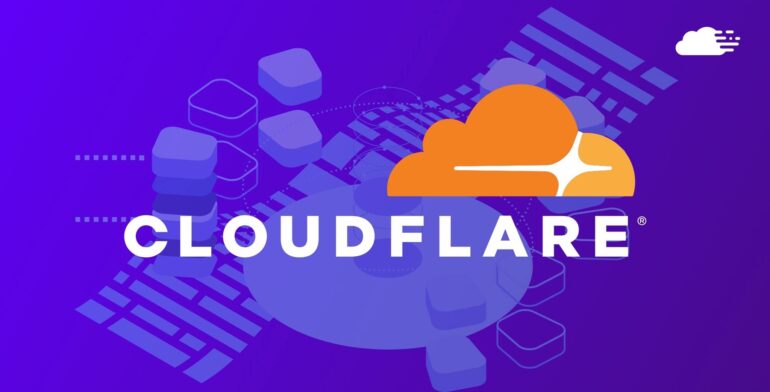TL;DR:
- Cloudflare introduces Cloudflare AI and a suite of AI tools for developers.
- Developers can build “full-stack” AI applications on Cloudflare’s network, simplifying infrastructure management.
- Cloudflare aims to push the AI industry forward on its 13th anniversary.
- The company, known for internet performance and security, expanded into Web3 with Ethereum validator nodes.
- Cloudflare plays a vital role in cybersecurity by alerting users to potential risks.
- The AI platform competes with industry giants like AWS, Azure, IBM, and Google Cloud.
- Key features include Worker AI for cost-effective GPU access and AI Gateway for monitoring AI utilization.
- Collaborations with Microsoft, NVIDIA, Hugging Face, Databricks, and Meta demonstrate a commitment to AI innovation.
- Cloudflare streamlines AI model deployment, addresses financial challenges, and prioritizes data privacy and compliance.
- Cloudflare’s approach helps mitigate the high costs and resource challenges associated with AI.
- The company acknowledges the need for vigilance against AI misuse and cyber threats.
Main AI News:
In a strategic move unveiled on the company’s 13th anniversary, Cloudflare, the stalwart of internet performance and security, is setting its sights on artificial intelligence. The introduction of Cloudflare AI and a suite of generative AI tools marks a significant milestone in Cloudflare’s evolution. This innovative platform empowers developers to construct “full-stack” and “production-ready” AI applications right on Cloudflare’s extensive server network, eliminating the complexities of managing direct infrastructure and offering a rapid and cost-effective AI deployment solution.
Cloudflare CEO, Matthew Prince, stated, “Around our anniversary, which we consider our birthday, we traditionally announce new products. We’re going to help push the AI world forward with the delivery of everything we’re doing around the space.” This bold step forward builds upon Cloudflare’s 2009 inception in San Francisco, where it became a crucial interface between websites and users, leveraging the domain name system (DNS) to bolster security, enhance content delivery speed, fortify against cyberattacks, and optimize web performance through its global server network.
Notably, Cloudflare ventured into Web3 last year, revealing plans to operate and stake Ethereum validator nodes after the blockchain transitioned from proof-of-work to proof-of-stake. This forward-thinking approach positions Cloudflare at the forefront of technological advancements in the blockchain space.
In an era where cybersecurity is paramount, Cloudflare remains vigilant. When the decentralized cryptocurrency exchange, Balancer, fell victim to a DNS attack, Cloudflare played a crucial role in safeguarding users by issuing timely alerts about potential risks associated with interacting with exchange frontends and wallets.
Cloudflare’s foray into AI places it alongside industry giants such as Amazon Web Services (AWS), Azure by Microsoft, IBM Cloud, and Google Cloud, reaffirming its commitment to technological innovation.
One of the key features accompanying the Cloudflare AI launch is Worker AI, a resource-efficient solution that provides seamless and cost-effective GPU access across Cloudflare’s expansive network, specially designed for rapid AI tasks. Vectorize, an integral component of Worker AI, enables developers to efficiently perform embeddings. Additionally, the newly launched AI Gateway empowers users to monitor AI utilization, offering valuable insights for cost management.
Cloudflare’s collaborative efforts with tech leaders like Microsoft, NVIDIA, Hugging Face, Databricks, and Meta (Facebook’s parent company) demonstrate its commitment to fostering AI innovation. Matthew Prince explained, “Our primary goal is to streamline the deployment of a Hugging Face model from their library across Cloudflare’s infrastructure, ensuring it’s operational in no time. [Hugging Face] is going through their model catalog and optimizing the model to make sure that they will run as well as possible across our entire infrastructure.“
Beyond creating and deploying new AI models, Cloudflare’s AI platform extends its capabilities to the development of plugins for OpenAI’s ChatGPT, customization of AI models, and addressing the financial intricacies of AI workload deployment while upholding customer data privacy and compliance.
AI’s potential comes with substantial financial considerations, as highlighted in a February 2023 report by data analytics firm SemiAnalysis. Running a chatbot like ChatGPT can accumulate significant costs, with hardware expenses reaching $644,444 per day and $0.36 per query. Prince emphasized that Cloudflare’s approach streamlines resource allocation and mitigates the burden of resource scarcity, making it an optimal choice for AI developers.
Nonetheless, financial costs and infrastructure challenges are not the sole concerns of AI developers. The misuse of advanced AI technology by cybercriminals, particularly in creating scams and illegal deepfakes, remains a pressing issue. Prince underlined the importance of industry vigilance and continuous assessment in addressing this evolving threat landscape.
“I’m pretty optimistic that there are more good guys than bad guys, and the good guys tend to have more resources than the bad guys do, and that is the solution to many of the problems,” Prince concluded. Cloudflare’s journey into the realm of AI signifies its commitment to shaping the future of technology while safeguarding its integrity.
Conclusion:
Cloudflare’s entry into the AI space not only offers developers powerful tools but also strengthens its position in the market by diversifying its services. By addressing infrastructure challenges and cybersecurity concerns, Cloudflare is poised to play a significant role in shaping the future of AI deployment while safeguarding data and ensuring efficient resource utilization. This strategic move positions Cloudflare as a formidable contender in the evolving AI landscape.

